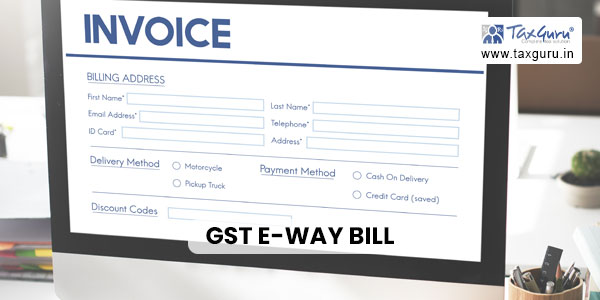“Explore the revolution in goods transportation with the GST E-way Bill system in India. Learn its importance, how to generate one, thresholds, validity periods, and consequences of non-compliance. Navigate the complexities, avoid penalties, and embrace the efficiency, transparency, and accountability offered by this digital document in the logistics industry.”
Efficient Goods Transportation made possible with the E-way Bill system in India. The implementation of the E-way Bill system in India has revolutionized the process of transporting goods by replacing traditional paper-based methods with a digital document. In this article, we will explore the significance of the E-way Bill, its implications on the logistics industry, and the penalties associated with non-compliance.
Understanding the E-way Bill:
The E-way Bill is a digital document that serves as evidence for the transportation of goods within India. It contains crucial information such as the origin and destination of the goods, their nature, and details about the transporting vehicle.
Importance of the E-way Bill:
The E-way Bill system plays a vital role in organizing the movement of goods and combating tax evasion. By simplifying logistics processes, it saves time, ensures transparency, and enhances accountability.
Generating an E-way Bill:
Businesses engaged in transportation need to register on the E-way Bill website to generate the document. They must provide relevant information, including invoices and descriptions of the goods being transported. The system generates a unique E-way Bill number, which expires after a specified period. Any changes to the consignment require an update of the E-way Bill.
Threshold for E-way Bill Generation:
The requirement to generate an E-way Bill is determined by specific value thresholds in India. The thresholds vary based on factors such as inter-state and intra-state transactions, as well as the type of goods being transported. Here is a general overview:
- Inter-state Transactions: An E-way Bill is mandatory for goods valued at or above Rs. 50,000.
- Intra-state Transactions: Each state sets its own threshold, which may differ from the inter-state threshold. It is advisable to verify the specific threshold for the relevant state.

Validity of an E-way Bill:
The validity of an E-way Bill in India is determined based on the distance to be covered for the transportation of goods. The current validity periods are as follows:
For Distance Up to 200 km: The E-way Bill is valid for one day from the date and time of its generation.
For Distance Between 200 km and 500 km: The E-way Bill is valid for three days from the date and time of its generation.
For Distance Between 500 km and 1,000 km: The E-way Bill is valid for five days from the date and time of its generation.
For Distance Over 1,000 km: An additional one day is added to the validity period for every 1,000 km or part thereof. For example, if the distance to be covered is 1,500 km, the validity of the E-way Bill would be six days.
It’s important to note that these validity periods apply to both inter-state and intra-state transportation. After the expiration of the E-way Bill, a new one must be generated if the transportation is not yet completed.
Consequences of Non-Compliance:
Failure to comply with E-way Bill regulations can result in penalties, both in terms of monetary fines and non-monetary implications. Here are the potential consequences:
- Monetary Penalty: Transporting goods without an invoice and E-way Bill is considered an offense. Authorities can impose a penalty of Rs. 10,000 or the payable tax amount, whichever is higher. The minimum penalty for non-compliance is Rs. 10,000.
- Detention and Seizure: Vehicles found without an E-way Bill may be detained or seized. Releasing the vehicle requires payment of the appropriate tax and penalty for incorrect vehicle information in the E-way Bill. Two scenarios can unfold:
a. Paying the Penalty: The owner must remit 100% of the tax amount due.
b. Non-Payment of Penalty: The penalty will amount to 50% of the value of the transported goods.
Penalty for Errors in the E-way Bill:
In response to concerns from goods owners and truck drivers, the Government of India (GoI) clarified that minor errors in the supplier’s GST registration or the GST e-way bill during transportation will result in a penalty of Rs. 1000 imposed on the registered business or the transporter.
The owner or transporter is responsible for settling the penalty by completing Form GST DRC-07 for each relevant consignment.
Impact on Business and Logistics:
The implementation of the E-way Bill system has significantly impacted businesses and logistics operations in India. The system has streamlined operations, reduced paperwork, and improved supply chain management. Moreover, it enables the government to monitor goods movement, enforce tax regulations, and mitigate tax fraud.
Conclusion:
The E-way Bill system has transformed the transportation of goods in India by introducing efficiency, transparency, and accountability. As businesses and the government continue to embrace technological advancements, the E-way Bill system remains a crucial component of India’s journey towards a digital and unified tax regime.





